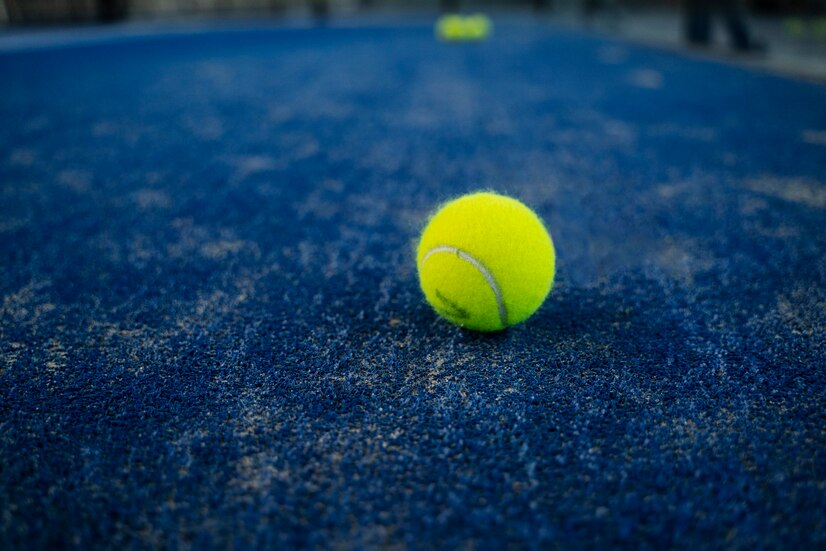Padel and tennis are two popular racket sports, but there are significant differences between them, particularly when it comes to the balls used. Choosing the right ball is crucial not only for optimising your performance, but also for enhancing your playing experience. This article looks at the pros and cons of padel and tennis balls to help you make an informed choice.
The characteristics of padel balls
Padel balls are specifically designed for the game of padel. They have unique characteristics that set them apart from tennis balls. Here are some of their main specifications:
- Pressure: Padel balls are slightly less pressurised than tennis balls, which allows better control over shots.
- Diameter: They have a slightly smaller diameter, generally between 6.35 cm and 6.77 cm.
- Bounce: The bounce of a padel ball is generally lower than that of a tennis ball, which is optimised for the padel court.
- Weight: Padel balls are generally lighter, weighing between 56 and 59.4 grams.
Advantages of padel balls
There are several reasons why padel players prefer to use specific padel balls:
- Improved control: The low pressure of padel balls allows players to better control their shots, which is essential in a fast, dynamic game like padel.
- Optimised bounce: The reduced bounce is perfect for padel surfaces, making it easier to play fast and close to the net.
- Durability: Padel balls are designed to resist rapid wear and tear, making them last longer than tennis balls.
Disadvantages of padel balls
Despite these advantages, padel balls also have some potential drawbacks:
- Limited compatibility: Padel balls are not ideal for tennis courts and do not provide optimal performance in this context.
- Cost: Due to their specialisation, padel balls can be more expensive than traditional tennis balls.
- Availability: Depending on where you live, it may be difficult to find padel balls, especially if padel is less popular in your area.
Tennis ball characteristics
On the other hand, tennis balls are well known and widely used. They have distinct characteristics:
- Pressure: Tennis balls have a higher pressure, which makes them more bouncy.
- Diameter: Their diameter is generally slightly larger, around 6.54 cm to 6.86 cm.
- Bounce: Thanks to their higher pressure, tennis balls have a higher bounce, which is suited to the larger dimensions of tennis courts.
- Weight: They weigh between 56 and 59.4 grams, similar to padel balls, but their construction is different.
Advantages of tennis balls
Tennis balls have a number of key advantages:
- Versatility: They can be used on different types of court surfaces (clay, hard, grass) without any significant loss of performance.
- Availability: Easily available in almost all regions, tennis balls are a practical choice for players around the world.
- Cost: They are often less expensive, especially in bulk, making them an economical option for many players.
Disadvantages of tennis balls
However, tennis balls are not without their drawbacks:
- Incompatibility with padel: Due to their higher pressurisation and bounce, they are not ideal for playing padel and can detract from the quality of the game.
- Rapid wear and tear: Tennis balls wear out more quickly, especially when used on hard surfaces.
- Less control: The higher pressure makes the ball harder to control, which can be a disadvantage, especially for beginners.
What are the criteria for choosing between a padel ball and a tennis ball?
To make an informed choice between a padel ball and a tennis ball, there are a number of criteria to consider:
- Type of court: If you mainly play on a padel court, a padel ball will be more appropriate. On the other hand, if you play on a tennis court, opt for a tennis ball.
- Level of play: Beginners may benefit more from the control offered by padel balls, while advanced players may prefer the characteristics of tennis balls.
- Frequency of play: If you play regularly, the cost and durability of the ball are factors to consider.
- Availability: In some areas, tennis balls may be more readily available than padel balls.
Summary: Making the right choice
In conclusion, whether you choose a padel ball or a tennis ball will depend on a number of personal factors. Understanding the differences in pressure, bounce, diameter and weight is essential to making an informed choice. Ultimately, what matters most is choosing a ball that enhances your playing experience and suits your specific needs. To buy high-quality padel balls, feel free to visit our Bandeja Shop online shop, dedicated to padel equipment in Europe.

